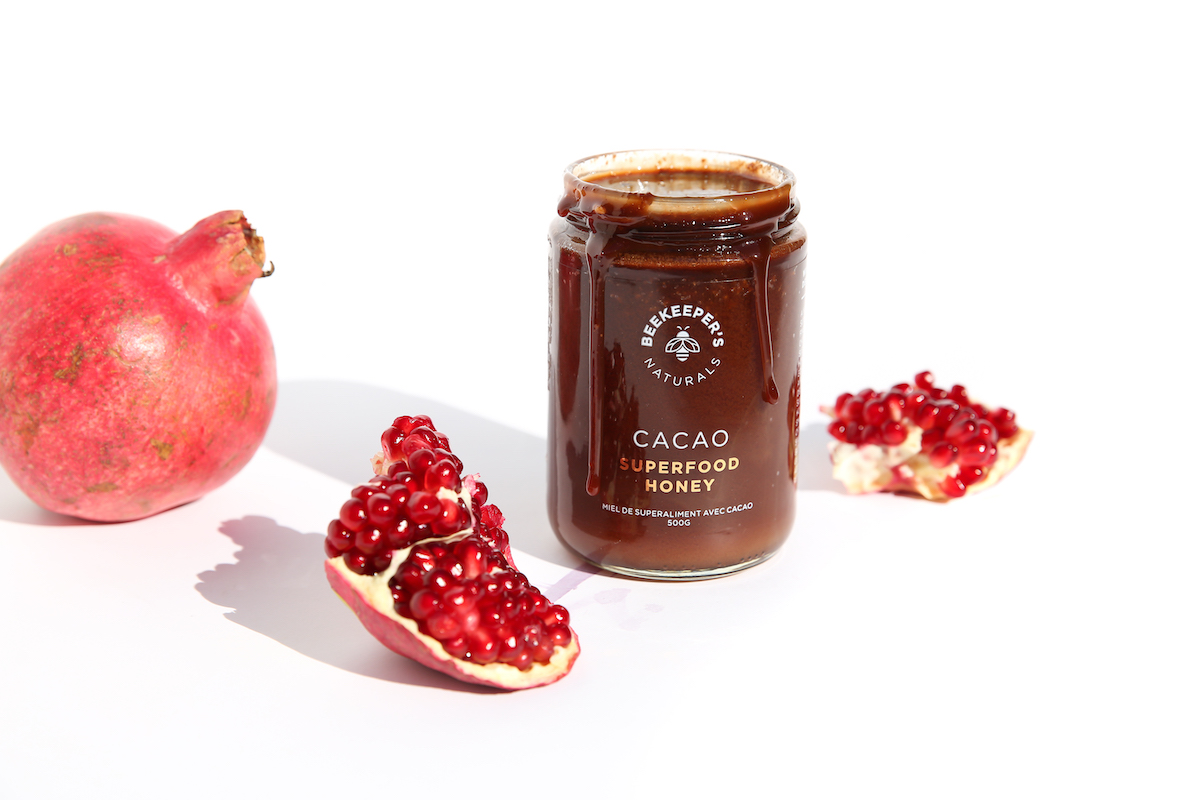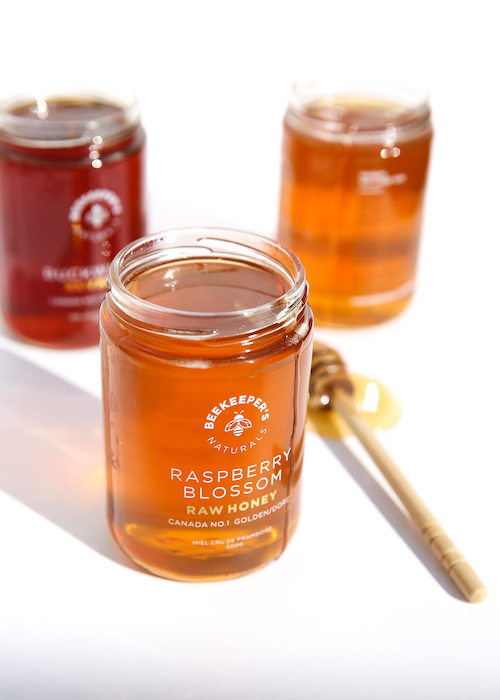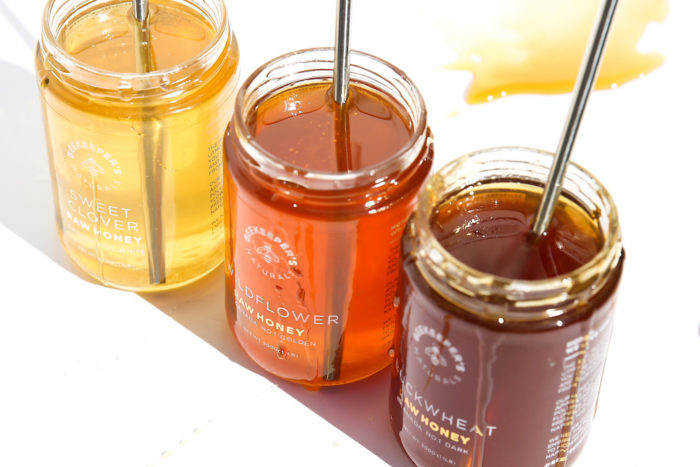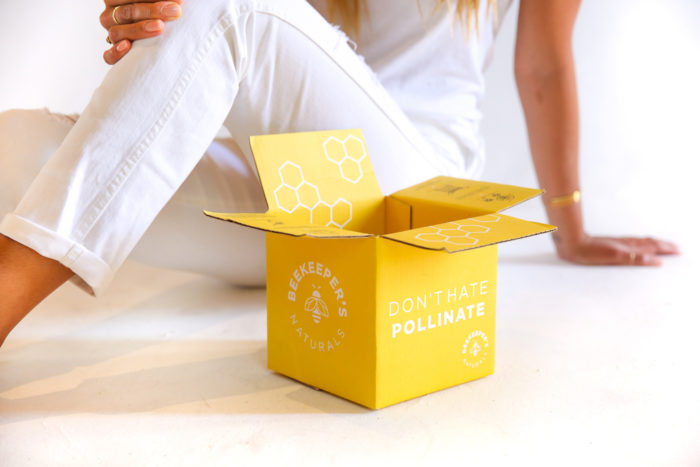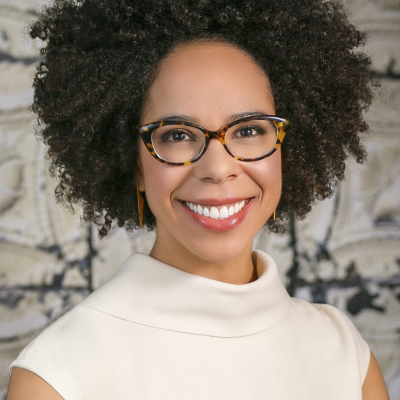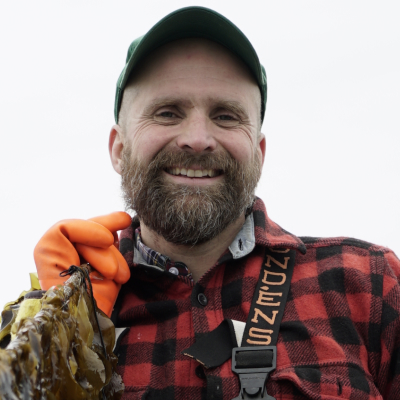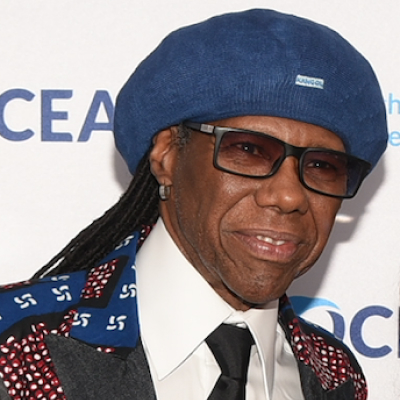Bees are a central player in our ecosystem — and their survival is at risk, thanks to serious threats from climate change, pesticides and more. Carly Stein, founder of Beekeeper’s Naturals, has created a honey-based business that prioritizes the health of bees with humane practices and sensitivity to their plight. Stein, who first fell in love with bee products as a solution to a severe case of tonsillitis, developed a line of superfood honeys and elixirs that are powerful health solutions for humans. But built into her business is her support of the bees themselves, because as Stein shows us, we are more dependent than we realize on all the bees do for our plane
You’ve become a champion of bees. How did your advocacy for bees and bee health come about?
People are often surprised to hear that I didn’t grow up around the hives. My first real introduction to bee products (besides honey) happened when I was studying on an exchange program in Europe. I came down with a severe case of tonsillitis while traveling through Italy. Because I have an autoimmune condition, I can’t take antibiotics, so it was either go home early to get surgery or find another alternative. I had hustled waitressing and saved up for months to go on this trip, so there was no way I was going to cut my adventure short because my annoying tonsils. I stumbled into an Italian pharmacy, gave the pharmacist my symptoms, and was handed a bottle of propolis. I had NO IDEA what it was at the time, but I had nothing to lose. Lo and behold, it actually worked! I had a surprisingly speedy recovery and got to stay abroad. That’s when I realized that this bee stuff was magic!
Coming back to North America, I couldn’t find propolis anywhere—which I found totally unacceptable. Propolis was the only thing that ever provided me with any sense of relief, so I wasn’t willing to live without it. I began apprenticing with a local beekeeper to start harvesting my own. After the first day out among the bees, I was hooked.
The more time I spent around the hives, the deeper my fascination with bees grew. Bees are so interesting! I was blown away by the intricate societies they form and how they communicate (They communicate via these intricate waggles. They are legit masters of interpretive dance!). I started digging deeper, exploring and understanding the integral role the bees play on our planet and how crucial they are to our ecosystem. It became my mission not only to share the incredible healing power of bee products with the world, but to do everything I could to help save the bees in the process. That’s how Beekeeper’s Naturals was born.
What can we learn from bees?
Bees have so much to teach us. They are selfless and famously hard workers. But the quality I find most beautiful is their sense of community. I find the way the bees all work together for the collective good to be so beautiful. Everyone has a job, from a nurse bee to a forager. Each of the ladies contributes to the betterment and survival of the hive. And by working together and supporting each other, they accomplish truly incredible things. I think humans could learn a lot from them. We are better when we work together.
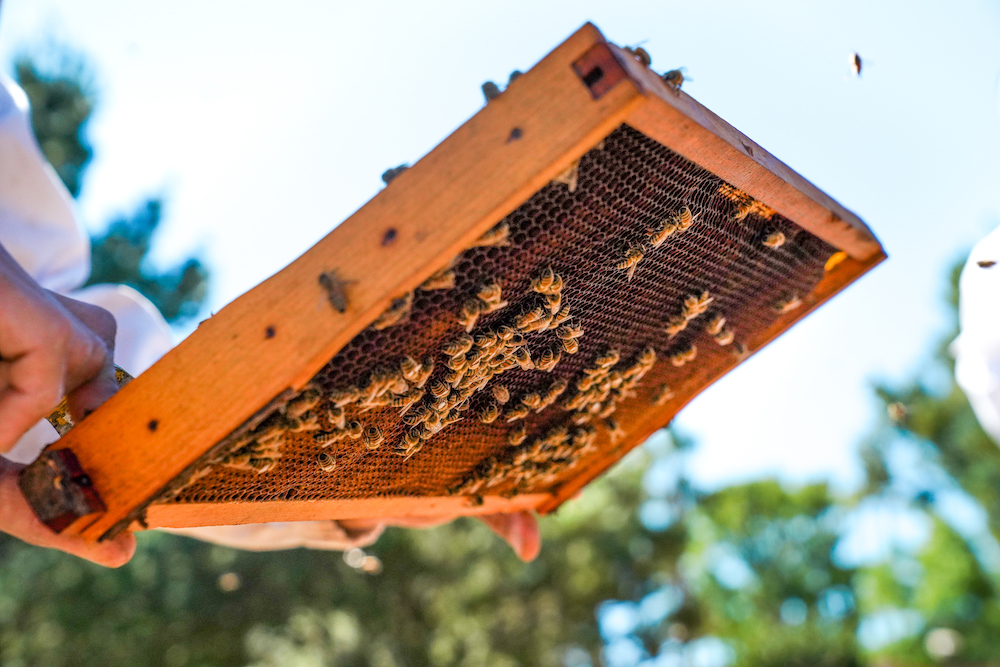
Why should we include bee products in our diet and routines? What benefits do bee products generally provide that we can’t find from other sources?
Bee products aren’t just foods—they’re these uniquely bioavailable wellness solutions. There’s really nothing else like them, which is why I call them the ‘hive superfoods’. Few foods are so completely nourishing and suited for so many different health concerns. Every one of the hive superfoods is high in antioxidants, prebiotics, vitamins, and enzymes, but each one comes with specialized benefits, too.
Propolis is a wellness essential for me, especially during cold and flu season. I call it nature’s ultimate defender. It has the incredible ability to boost the immune system to help ward off unwelcome germs. Royal jelly, on the other hand, is incredibly nourishing to the brain and supports better memory and focus. And bee pollen is practically nature’s multivitamin, rich in easily digestible protein, amino acids, vitamins, and minerals. They are all pretty amazing in their own way.
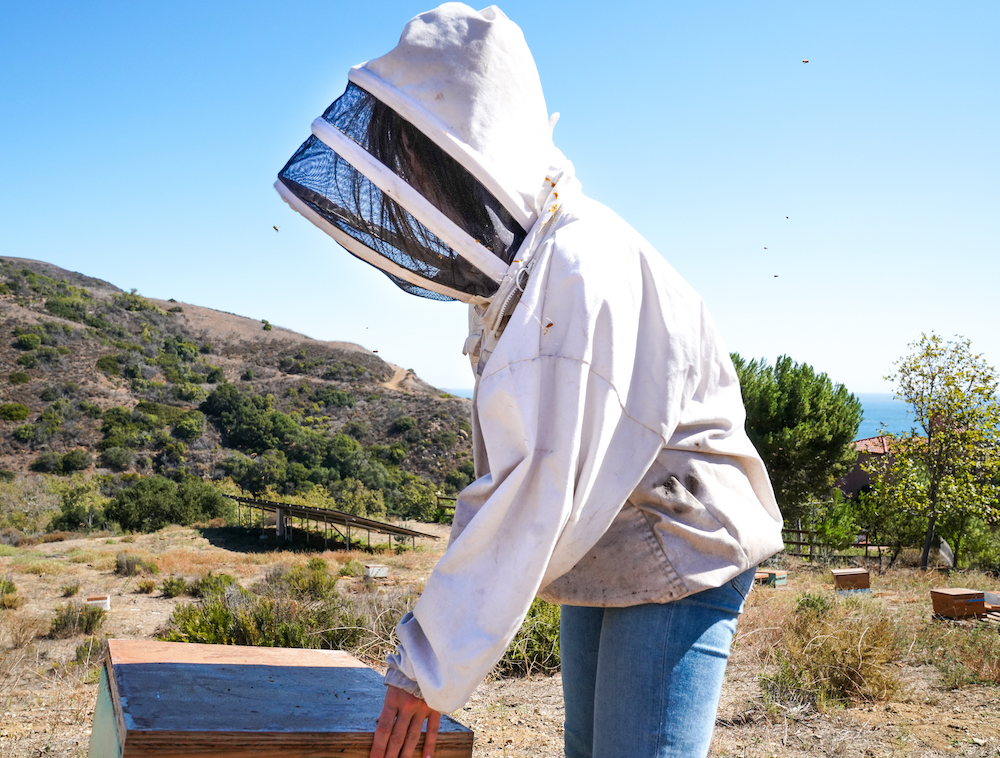
Colony Collapse Disorder has led to the disappearance of about 25% of hives in North America annually. What’s at the root of this disorder?
Bees across North America have been dying in huge numbers. This is most likely due to an unfortunate combination of causes, but the big players in my eyes are pesticides and climate change.
Pretty much all across North America, bees are having a hard time finding food that isn’t coated in harmful pesticides. Many farmlands use tons of toxic pesticides that absolutely decimate hives and indiscriminately kill pollinators. The most worrisome of these are neonics. Neonics have been shown to seriously harm bees. Often used to coat seeds, they taint the nectar of flowers and majorly impact bees’ cognitive and reproductive functions, which can be utterly devastating to a hive. And yet, 75 percent of honey in the world contains at least trace amounts of these toxins. They’ve been banned in Europe, but they are still unfortunately used in North America.
On the other hand, climate change is further reducing bee habitat. Temperatures and weather patterns are becoming less predictable. The winter freeze and spring thaw is happening with less dependability. It’s confusing for the bees, who aren’t designed to adapt quickly to new environments. A hive might miss the spring bloom entirely, which would be bad for the hive and bad for crops, too.
So, bees are both losing habitat at a rapid rate and are sick from the chemicals we spray on our crops. It’s an uphill battle, but we are at serious risk for losing our precious pollinators. (Without them, the global food system as we know would literally crumble.)
What can we do on a day-to-day basis to help bees?
Saving the bees may seem like an overwhelming, monumental task, but it only requires a few small, actionable steps on your part.
No. 1—avoid pesticides. Don’t spray pesticides on your lawn and support organic or local pesticide-free growers as often as possible. A lot of people don’t realize that what they buy at the grocery store really matters. When you’re filling up your cart, it’s crucial to make sure every item aligns with an ethos you can stand behind, because you are literally putting your money where your mouth is. To support bees, that means buying organic and pesticide-free as often as you can, buying raw honey products, and looking for brands that prioritize sustainability.
No. 2—plant flowers. Make sure your local bees have access to clean, nourishing food by planting a bee garden. Design a garden (even in a window box) with year-round blooms so the bees have good stuff to eat all 3 seasons. It’s also helpful to create a little bee bath (like a mini version of a bird bath with a little landing rock in the center) so they have access to fresh water, too.
No. 3—spread the word. One of the most important things you can do is educate. The bees can’t advocate for themselves, so we have to do it for them. Get your friends and family to plant bee gardens so that clean bee habitat continues to grow in your neighborhood.
Taking action against pesticides and climate change on a local level is also critically important. Write in to your local government, share information on social media, and check in to the many different organizations that support bees. We work closely with UC Davis Bee Research and the Canadian Bee Research Fund, but there are a number of other organizations doing great things.
The U.S. pulled out of the Paris Agreement, placed a climate change denier in charge of the EPA, and is systematically reversing regulations that protect the environment. How have bees been impacted by these policies?
It’s devastating, especially since pesticides and climate change have a direct impact on bee health. The more we continue to use pesticides and allow climate change to progress, the more we endanger our pollinators. Already, 1 in 4 species of wild bees across North America are at serious risk for extinction, including, most recently, the bumblebee. That’s why it has never been more important to get involved on the citizen level. We need to take the responsibility into our own hands.
In addition to making small day-to-day shifts at home, think about who you’re giving your money to. What impact will that new pair of shoes you buy have on the planet? Does your honey come from sustainable apiaries? Do you opt for organic when you can and limit your consumption of single-use plastics? It’s all connected, so becoming more conscious about your lifestyle can make small yet seriously impactful waves.

